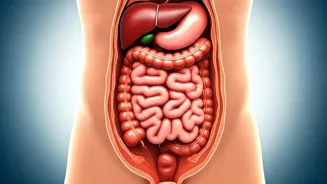Fighting Visceral Fat
Visceral fat, which surrounds vital organs in the abdomen, is linked to various health problems, including heart disease, type 2 diabetes, and certain
cancers. It's crucial to understand that managing visceral fat isn't just about aesthetics; it's about safeguarding your health. The strategies for reducing this type of fat involve a combination of dietary changes, regular exercise, and lifestyle adjustments. Making informed food choices, particularly regarding carbohydrates, can significantly impact your body composition and reduce health risks. A balanced approach is key, where you incorporate these helpful carbohydrates, alongside regular physical activities, to achieve optimal outcomes.
Embrace Whole Grains
Whole grains, unlike their refined counterparts, retain their bran, germ, and endosperm, providing a wealth of nutrients and fiber. Fiber-rich foods help you feel full longer, reducing the likelihood of overeating, which is critical for weight management. Incorporating whole grains such as oats, quinoa, brown rice, and whole-wheat bread into your diet can contribute to reducing visceral fat accumulation. The fiber also aids in regulating blood sugar levels, preventing the spikes and crashes that can lead to cravings and fat storage. These grains also offer essential vitamins and minerals that support overall health. Selecting whole grain options over refined products is an excellent step towards a healthier eating style.
Legumes: Powerhouses of Nutrition
Legumes, including beans, lentils, and chickpeas, are remarkable for their high fiber and protein content. Fiber and protein work in tandem to stabilize blood sugar, support satiety, and boost metabolism. Moreover, legumes are relatively low in calories and packed with vital nutrients. Regular consumption of legumes can help suppress appetite, decrease calorie intake, and, in turn, reduce visceral fat. They are versatile and can be added to various dishes, from soups and stews to salads and side dishes. Including legumes in your diet is a strategic move toward better health and weight management. Their sustained energy release makes them a perfect choice for staying active and energetic throughout the day.
Fruits: Nature's Sweet Treats
Fruits, particularly those rich in fiber and antioxidants, can be beneficial for managing visceral fat. Fruits such as berries, apples, and citrus fruits have high fiber content, which aids in digestion and promotes satiety. Antioxidants in fruits help combat inflammation and protect cells from damage. While fruits contain natural sugars, their fiber content slows down sugar absorption, preventing rapid spikes in blood sugar levels. Choosing whole fruits over fruit juices is critical because the fiber is often lost in the juice extraction process. Including a variety of fruits in your diet provides a range of nutrients and keeps your diet engaging and palatable.
Non-Starchy Vegetables
Non-starchy vegetables, such as leafy greens, broccoli, and cauliflower, are incredibly low in calories and high in nutrients, making them an excellent choice for anyone trying to reduce visceral fat. These vegetables provide a lot of bulk without adding many calories, which can help you feel full and prevent overeating. They are packed with vitamins, minerals, and antioxidants, which support overall health and can help reduce inflammation. Because of their high fiber and low-calorie content, you can eat a large quantity of these vegetables without exceeding your daily calorie needs. Make these a staple of your daily meals to boost your health.
Healthy Fats: The Balance
While carbohydrates are the focus, including healthy fats in your diet is equally important for overall health and efficient fat loss. Healthy fats, such as those found in avocados, nuts, and seeds, can promote satiety, improve insulin sensitivity, and support metabolic health. These fats help regulate blood sugar levels and may help reduce inflammation. Incorporating a moderate amount of healthy fats along with your carb-focused diet can help create a balanced approach. Healthy fats also support the absorption of fat-soluble vitamins and provide essential nutrients that contribute to overall well-being. Including healthy fats can further assist in managing weight and improving overall metabolic health.
Portion Control Matters
Regardless of which carbs you choose, portion control is critical to success. Overeating even healthy carbs can hinder weight loss efforts. Be mindful of serving sizes and avoid overconsumption. Using smaller plates, measuring your food, and paying attention to your body's hunger and fullness signals can help you manage your intake. Combining portion control with regular exercise and sufficient sleep creates a robust strategy for reducing visceral fat. Regularly reviewing your food intake and adjusting portion sizes based on your progress is crucial. Consistent adherence to portion control supports overall wellness and ensures sustainable results in your journey.













